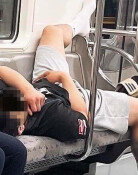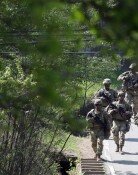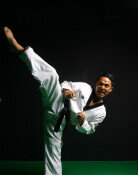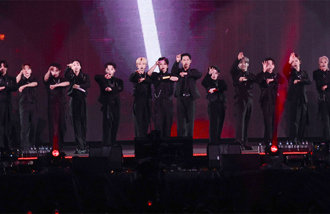Enhancing expertise of core military personnel
Enhancing expertise of core military personnel
Posted September. 30, 2011 03:00,
Saturday will mark the 63rd anniversary of the founding of the Republic of Korea`s armed forces. On Oct. 1, 1950, the Army`s 3rd Division crossed the 38th parallel for the first time after North Korea started the Korean War June 25 of that year. The South Korean military, which was founded with 50,000 troops and old-fashioned Japanese-made rifles but lacked even a single fighter jet or a tank, overcame the scars of the war and grew rapidly.
In December 2015, the South Korean military will be reborn as the main player in national defense after taking over wartime operational command that President Syngman Rhee handed over to the U.S. at the beginning of the war. The South Korean military has not been able to exercise its own independent wartime command since Japan disbanded it in August 1907.
The security reality that the South Korean military will face, however, is not an easy challenge. North Korea, which continues its nuclear weapons program, possesses 1.17 million troops, double that of South Korea. The North`s 170-millimeter self-propelled artillery and 240-millimeter multiple rocket launchers are concentrated along the Demilitarized Zone and ready to turn Seoul and its vicinity into a "sea of fire."
Northeast Asia, where four of the world`s great powers -- the U.S., China, Russia and Japan -- face each another, is a region where more than half of the world`s military spending is made. Backed by its expanding economy, China is accelerating the development of high-tech weapons systems and equipment, including stealth jet fighters and aircraft carriers. Located in a region surrounded by the four powers and vulnerable to security instability, South Korea has to carry the fate of national division and play a desperate game of survival.
The Korean military is implementing large-scale reform of itself to respond to the rapidly changing security environment. To nurture a strong military, the government should push for the construction of a naval base on Jeju Island, the selection of the next-generation fighter jet, and the planned acquisition of unmanned aerial vehicles and high-tech radar equipment without fail. Also important is imbuing soldiers with the spirit of certain victory in the event of war.
Modern warfare requires, more than anything else, the strengthening of core military personnel. Under South Korea`s military system, the military recruits a large number of people, train them with government budgets, and use them for a while before private companies recruit them. It is impossible for the military to secure elite personnel at a time when KF-16 fighter jet pilot trainers move to private airlines as soon as they complete their mandatory service. It costs an average of 10.9 billion won (9.3 million U.S. dollars) to foster one KF-16 fighter jet pilot trainer. Due to a shortage of experts who can operate combat naval vessels, tanks and helicopters, enlisted servicemen often fill these positions for several months. The military also has a shortage of experts who can generally operate the command, control, communications, computers and intelligence system for future intelligence and network warfare. A national master plan for enhancing core military personnel`s expertise is urgently needed.
Men in uniform are the cornerstones of national security. The public should respect their honor. A military that is loved by its people can truly be a strong military.







